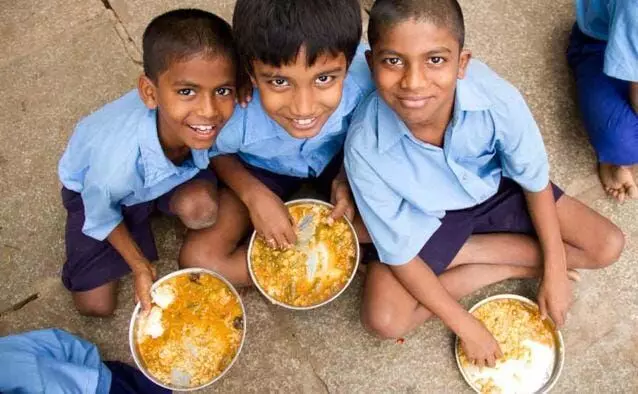'Zero-food children' report a deliberate and malicious attempt to sensationalise fake news: WCD
The study claimed the prevalence of "zero-food children" in India was at 19.3 per cent and drew attention to extreme food deprivation
By Newsmeter Network
Representational Image.
New Delhi: The Union Ministry of Women and Child Development Tuesday denounced a recently published article on "zero-food children" in India, and labelled it as a deliberate and malicious attempt to sensationalise fake news.
In a statement, the ministry said the article lacked primary research and made misleading assertions.
The article referred to was published recently in the peer-reviewed journal JAMA Network Open. The study claimed the prevalence of "zero-food children" in India was at 19.3 per cent and drew attention to extreme food deprivation among children.
It also ranked India as having the third-highest percentage of "zero-food children", after only Guinea (21.8 per cent) and Mali (20.5 per cent). In terms of numbers, the report claimed, India has the highest number of "zero-food children" at more than six million.
Zero-food children is a term used to refer to children between six and 23 months old who did not consume any milk, formula or food in the last 24 hours.
However, the ministry pointed out that the authors of the study themselves admitted to significant limitations in their data, rendering their conclusions unreliable.
"The authors themselves have admitted to deep misgivings on the data and have referred to at least 9 limitations which make their study absolutely unreliable. There is no scientific definition of 'zero food children'," it said in the statement.
"The methodology followed is opaque and has attempted to interpret single-day recalls by those who were supposedly contacted. No state government or any private organisation in India has ever reported about starving children," the ministry added.
A glaring oversight highlighted by the ministry was the failure of the JAMA article to recognise the significance of breast milk for infants, especially those over six months old.
The study's exclusion of breast milk from the definition of food for infants between six and 23 months raises questions about its credibility, it said.
Out of the children labelled as "zero-food children", a substantial portion had received breast milk, debunking the sensationalised claims in the report, the ministry added.
"Out of the so-called 19.3 per cent Zero Food Children referred to by the study, 17.8 per cent had received breast milk and only 1.5 per cent children have been claimed as non-breast fed," it said.
The ministry also noted that the study ignored publicly available data from the Poshan Tracker, which monitors over eight crore children across the country through Anganwadi centres.
It said these centres play a crucial role in providing supplementary nutrition, including micro-nutrients and fortified foods, to children under six years old.
Contrary to the alarmist narrative presented in the JAMA article, the ministry said, the data from the Poshan Tracker revealed that only a small percentage of children suffer from severe malnutrition or wasting.
Additionally, the ministry said the government's Pradhan Mantri Matru Vandana Yojana scheme provides financial assistance to pregnant women to promote health-seeking behaviour and immunisation for their children.
Approximately, Rs 14,756 crore has been disbursed to 3.8 crore women under the scheme, demonstrating the government's commitment to improving maternal and child health outcomes, it said.
The ministry also emphasized that the JAMA article lacked scientific rigour and relied on sensationalism rather than facts. It urged the public to scrutinise such reports critically.
Inputs from PTI